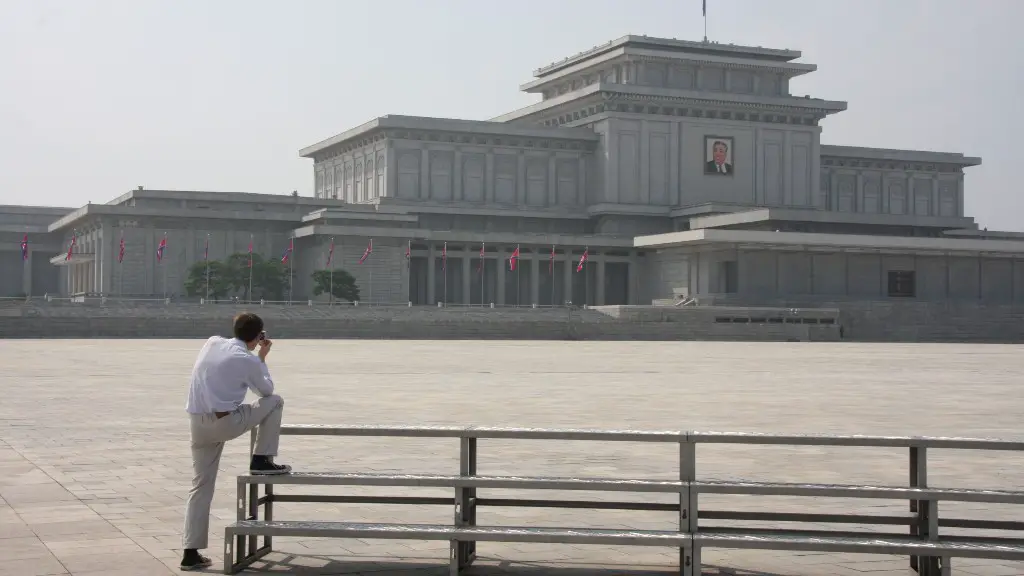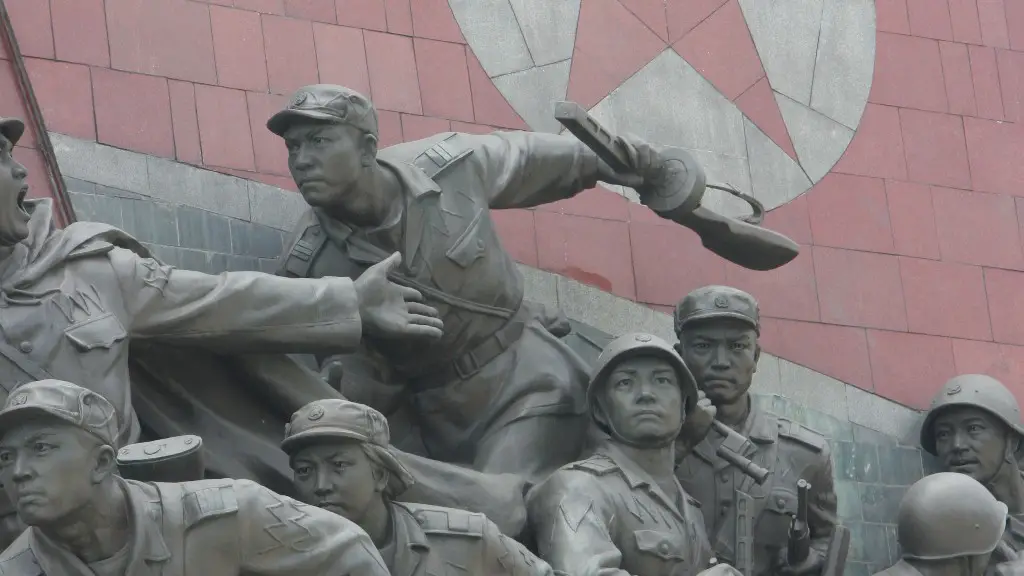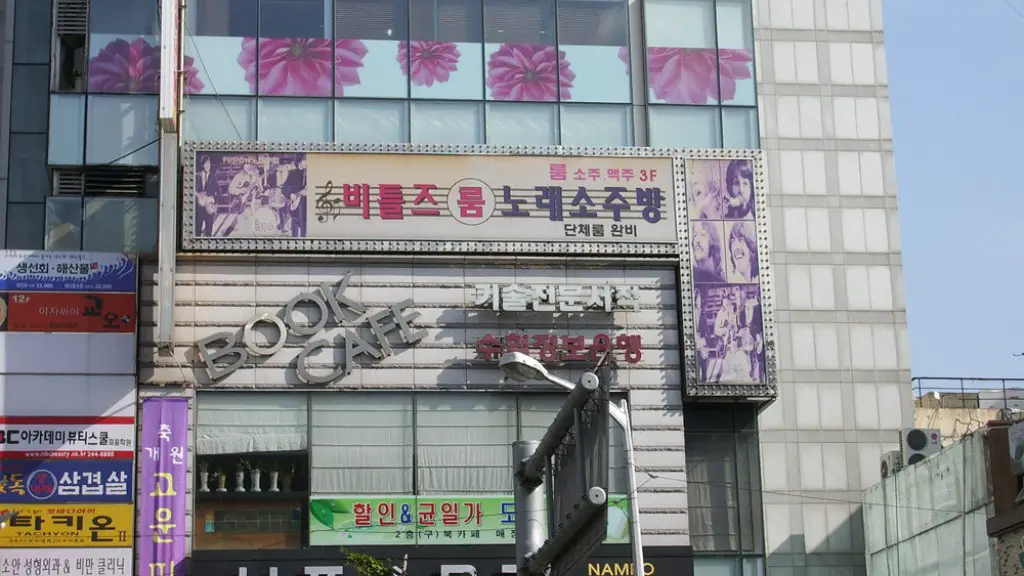North Korea is one of the most closed off and mysterious countries in the world. But who exactly is running it? The current Supreme Leader of North Korea is Kim Jong-un, the son of the former Supreme Leader Kim Jong Il and grandson of Kim Il-sung, the founder of the Democratic People’s Republic of Korea. The ruling family has been in power for three generations and it is thought to be a dynastic rule. Kim Jong-un is seen as the omnipotent and unquestioned leader, however there are several other powerful figures who have influence over the regime.
The Government of North Korea is led by the Premier, who is also known as the President of the Presidium. This is usually an elderly figure who acts as a spokesperson and representative of the government. They are responsible for communicating the government’s views to the public and representing the state at international events. As a public figure, they have to abide by the decisions and orders of the Supreme Leader and they have no power to make any decisions or changes independently.
The powerful military is also influential in North Korea and is headed by General Ri Yong-ho. His duty is to act as the main advisor to the ruler and to implement their instructions in the military. General Ri is significant because he is the one who declares loyalty to the current regime and practices the North Korean government’s military doctrine.
North Korea has several secretive circles of advisors and officials, many of whom are loyal members of North Korea’s ruling party, the Workers’ Party of Korea. These people are influential within the regime, often working behind the scenes and rarely seen in public. They advise on policy decisions, and act as intermediaries between the Supreme Leader and the public. They also have control over key resources and have the power to influence policy, which can help maintain the regime.
Though Kim Jong-un is officially in charge, there are several other influential figures who have contributed to the stability of North Korea as a whole. For example, Choe Ryong-hae is seen as an important diplomat and is credited for his handling of negotiations between the United States and North Korea. Another prominent figure is Ri Man-gon, who is the Director of the Propaganda and Agitation Department of the Workers’ Party of Korea. He is in charge of managing the state media and controlling the narrative around North Korea.
The international community is watching North Korea closely, as the decisions of the Supreme Leader have great implications for both domestic and foreign politics. In response, North Korea has continued to deny any involvement in international activities, claiming that the country is a self-governed and independent state.
The Role of Religion
Despite its official rejection of religion, North Korea is not entirely devoid of spiritual beliefs. Throughout the years, faith communities have been active in the country and have played a role in shaping North Korean culture and morality. Christianity and Buddhism are the most prominent religions practiced in the country, though sources suggest that there is also a growing following for Confucianism and Chondoism (the North Korean version of Christianity).
Religious followers in North Korea are often seen as posing a threat to the regime. For this reason, religious faiths are heavily persecuted and followers are often arrested or sent to labor camps for their practice. Despite this, many North Koreans continue to keep their faith, using coded language and worshipping in secret. This suggests that North Koreans are still hopeful of one day being able to practice freely.
Though religion is officially restricted in North Korea, many prominent figures have explored the various faiths practiced in the country. For example, Kim Jong-un’s father, Kim Jong Il, sought advice from various spiritual advisors and even expressed admiration for Buddhism. It is thought that this interest in religion influenced the development of his own moral ideology, which he tried to implement in the country.
Though it remains officially banned in North Korea, religion still plays an important role in many North Korean citizens’ lives. As such, the international community should continue to be aware of the extent of religious freedom in North Korea and call for its protection for North Koreans.
International Relations
North Korea’s relationship with the international community is complex, often oscillating between tension and reconciliation. As an isolated nation, North Korea has isolated itself from the rest of the world. They have remained firmly anti-Western and have refused to participate in international organizations like the United Nations, although high-level negotiations with the United States have occurred in recent years.
At the same time, North Korea has still maintained diplomatic ties with many countries, often acting as intermediaries. China, for example, is North Korea’s closest ally and their relationship has been strengthened in recent years due to the US’s tariffs imposed on Chinese exports. This partnership even extends to military alliances, with the two countries regularly holding joint exercises.
Overall, North Korea has sought to maintain a balance between international participation and isolationism. Though they have shown signs of collaboration with other countries, they also make sure to stay independent and protect their own interests. In this way, they have managed to continue their rule, remaining a largely enigmatic state to the rest of the world.
Economic Impacts
North Korea is an isolated country – its economy is heavily dependent on foreign aid and trade. The country’s resources are limited and its industrialized sectors are either old-fashioned or non-existent. Most of its population relies on subsistence farming, and the country does not have access to modern technology, infrastructure or capital.
Nonetheless, North Korea has sought to diversify its economy and benefit from regional trade. The Kim regime has implemented several market reforms, such as legalizing private markets and allowing foreign investments. These measures have helped to boost domestic production, though the country still remains heavily reliant on outside support.
The international community has also put pressure on North Korea to end its nuclear program and lift economic sanctions. This has created additional economic difficulties, as North Korea cannot access the international financial and trading systems. Though economic reforms have been implemented, the country still faces major issues, such as a lack of quality infrastructure, inconsistent wages and an unreliable energy supply.
Human Rights Abuses
The human rights situation in North Korea is considered by international authorities to be one of the worst in the world. Reports of torture, arbitrary detention and forced labor in the country’s labor camps are common. In addition, North Koreans face severe restrictions of their freedom of speech, assembly and religion.
The government also maintains strict control over information and media, with most citizens having limited access to the internet and books. The regime also restricts people’s access to foreign media and culture, as they seek to control the narrative around North Korea.
North Korea has also been criticized by the international community for its systematic discrimination against certain groups, such as the disabled, ethnic minorities and political dissidents. These people are often subjected to harsh punishments and many have fled the country to seek refuge in South Korea.
The international community has strongly condemned North Korea for its human rights abuses and has called for the government to take steps to improve the situation. Despite this, North Korea’s oppressive regime has shown no inclination to do so, and its human rights record continues to be a major issue for the international community.
Conclusion
Though North Korea is officially led by Kim Jong-un, there are several influential individuals and groups that have a hand in the country’s decision making. From military generals to faith leaders, it is clear that there are many stakeholders in this mysterious country. The international community should continue to take an interest in North Korean affairs, as the decisions made by its powerful figures have consequences that reach beyond its borders.





